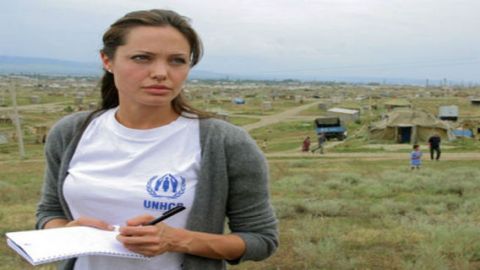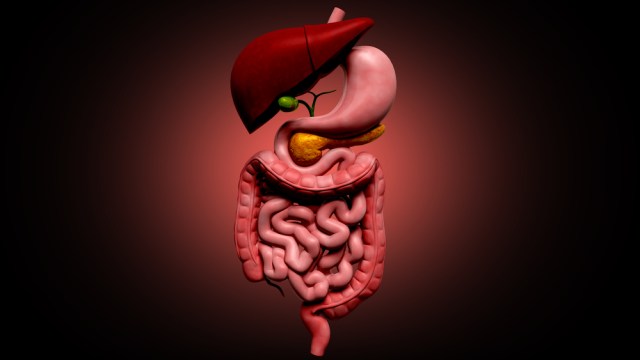Angelina Jolie, Breast Cancer, and Cancer Phobia

The most revealing and important line in Angelina Jolie’s OpEd in the New York Times today is not the one in which she reveals she has had her breasts removed to reduce the likelihood she will develop breast cancer. It’s this one; “Cancer is still a word that strikes fear into people’s hearts, producing a deep sense of powerlessness.”
Fear. Powerlessness. These are compelling emotions that compel dramatic choices, like the choice for a woman known for her sexual attractiveness to remove her breasts. We can all empathize with such fear, feel that same dark terror lurking in ourselves. The frightening feeling of not being able to protect oneself is a universal aspect of the psychology of risk perception, and a significant part of why cancer is the most feared disease in the United States.
Yet as understandable as such fear may be, and as understandable as it is that cancer “…strikes fear into people’s hearts, producing a deep sense of powerlessness.”, in many cases, that fear does more harm than the disease itself. Our response to powerlessness is to look for ways to fight back, to do something, to give ourselves a sense of control. Tens of thousands of people diagnosed with various forms of cancer (there are more than 150 kinds) find that reassuring sense of control by choosing treatment or interventions that in fact are unnecessary given the specific diagnosis, treatments and interventions that do far more damage than the disease itself ever would. This is what oncologist George Crile Jr. in 1955 termed Cancer Phobia.
I have written about this here before. CANCER PHOBIA! Fear of the disease can do as much harm, or more, than the disease itself Here are a few of the statistics from that piece;
Consider more evidence for Cancer Phobia. In “Overdiagnosis in Cancer” doctors at Dartmouth classified “25% of mammographically detected breast cancers, 50% of chest x-ray and/or sputum-detected lung cancers, and 60% of prostate-specific antigen–detected prostate cancers”, as ‘overdiagnosed’, which they defined as “1. The cancer never progresses (or, in fact, regresses) or 2. The cancer progresses slowly enough that the patient dies of other causes before the cancer becomes symptomatic.” The doctors described the negative health effects such patients suffer from a range of treatments that often involve radical surgery and noted; “Although such patients cannot benefit from unnecessary treatment, they can be harmed.”
Cancer Phobia compels many women to undergo mammography when it is becoming more and more clear that such screening, as reassuring as it may feel, saves far fewer lives, and may in fact do much more harm, that many women realize. (This is particularly true for women under 50, in whom the higher risk and more likely to be fatal breast cancers are more rare.) In Our Feel Good War on Breast Cancer, Peggy Orenstein reports “According to a survey of randomized clinical trials involving 600,000 women around the world, for every 2,000 women screened annually over 10 years, one life is prolonged but 10 healthy women are given diagnoses of breast cancer and unnecessarily treated, often with therapies that themselves have life-threatening side effects. Many of these ‘cancers’ are Ductal Carcinoma In Situ (D.C.I.S), also known as “Stage Zero Cancer”, abnormal cell growth that shows up on mammograms but can’t spread to other parts of the body and therefore can’t kill. Mammograms also detect lesions and abnormal cell growth that can even regress – disappear all by itself.
But what do you think women do when they hear that they have Stage Zero Breast Cancer? Which part of that definition do you think goes straight to their heart…the part that says ‘Stage Zero’ or the part that says ‘CANCER!!! ?” And when they hear they have breast cancer, (or even a genetic mutation that increases the risk they may get breast cancer) what do you think many women do, quite understandably? Afraid, powerless, they opt for treatment, treatments with serious and even lethal side effects that are not medically called for.
Men do the same thing with prostate cancer. I told the personal story of a friend of mine facing just such a choice in Cancer on the Brain in the New York Times last year. In his mid-40’s, diagnosed with a slow growing form of prostate cancer unlikely to kill him where ‘watchful waiting’ is one medical option, he chose radiation treatment that left him with urinary incontinence and loss of libido, not to rid himself of disease as much as to rid himself of fear of that disease. This happens so often that a panel of experts has recommended that the word ‘cancer’ be removed from the diagnosis of these slow growing unlikely-to-kill forms of prostate cancer. Other experts are suggesting the same thing with DCIS and other types of non-metastatic breast cancer.
It is absolutely vital to respect the emotional reality and power of fear, and not suggest that medical choices be made with merely dispassionate clinical ‘just the facts’ objectivity. There is no right or wrong answer to how people ought to make choices about cancer, except the choice each individual feels is right for them. Every diagnosis is unique. Every person is unique.
And then there is the harm that fear itself can do. Chronic stress causes real and serious health problems, a risk that people diagnosed with cancer also must deal with.’Fear removal surgery’ can be a healthy thing to do too.
But Ms. Jolie’s brace decisions to publicize her private choice, made to inspire, also potentially feeds the fear of cancer that can itself do serious harm. she writes “I choose not to keep my story private because there are many women who do not know that they might be living under the shadow of cancer.” “The shadow of cancer…”Ominous. Frightening. To everyone.
Rose Eveleth writes in Smithsonian about the increasing number of women make the choice Jolie made. Angelina Jolie’s Double mastectomy Choice Increasingly Common, Still Medically Murky. That is part of this story too. Cancer Phobia is a hidden and serious threat to public health, a shadow that we also should be aware of as we try to make the most informed





